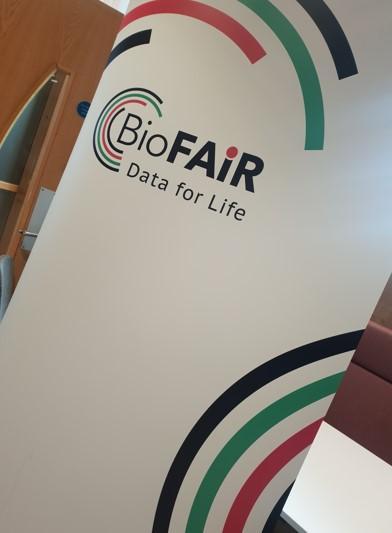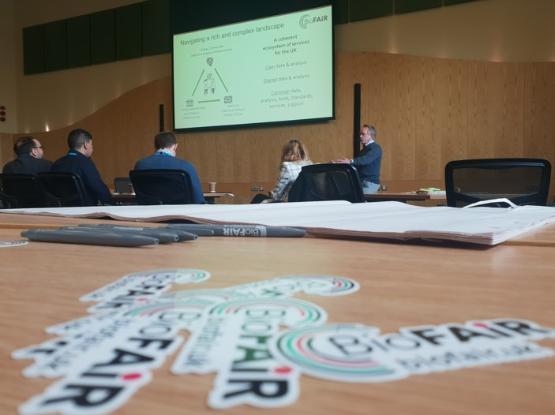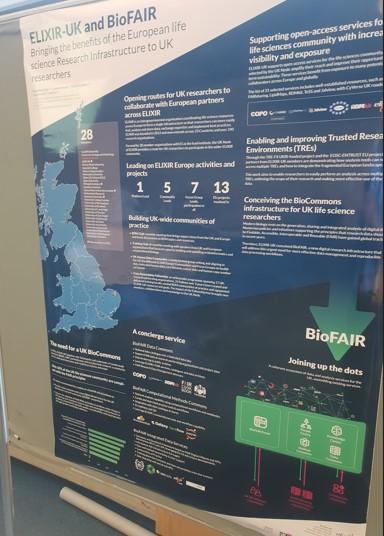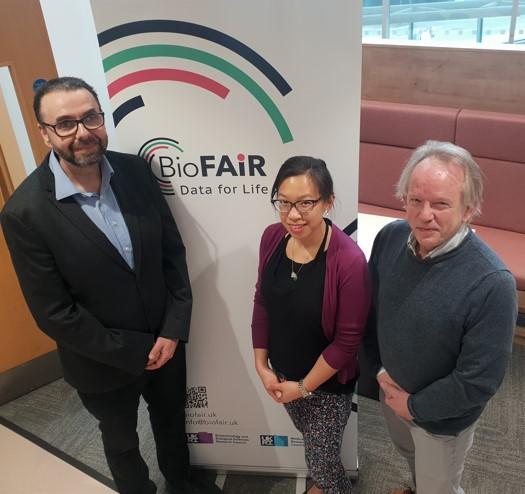£34m biomedical data bank will supercharge life sciences research

Biomedical research across dozens of universities in the UK is set to be given a boost thanks to a new £34 million initiative funded by UKRI.
BioFAIR aims to supercharge biomedical research by making data from life science research more accessible - the University of Bradford hosted a roadshow to raise awareness of the project on Wednesday 24 April.

Professor of Bioinformatics and Biomedical Data Science Krzystof Poterlowicz said: “BioFAIR's mission is to enhance research data management across the UK, highlighting our shared commitment to innovation and excellence.
"Pretty much all of our researchers across the Faculty of Life Sciences and anyone involved in digitisation, data reproducibility, analytics, and AI could benefit from the project, particularly access to the kind of data our researchers are interested in that has already been generated at other institutions.
“This can give our projects larger scope and bring greater efficiencies in terms of time and money, and will also help us put a greater focus on how data is managed right from the start of a project, so that it is well organised and accessible by all researchers, and reusable by others.”

Part of BioFAIR’s mission is to create a ‘common language’ for research data, so that researchers working in different fields can benefit from information they would otherwise be unaware of. It will also connect researchers working in different areas of life sciences, and help with training.
BioFAIR is funded by £34 from UKRI, the independent arm of the Department for Science, Innovation and Technology. It has partnered with ELIXIR-UK, the national node of ELIXIR Europe, an intergovernmental organisation that brings together life science resources from across the Continent. It provides platforms and guidance for research data management and offers training.
Both BioFAIR and ELIXIR-UK are managed by the Earlham Institute in Norwich, a hub of life science research, training, and innovation focused on understanding the natural world through the lens of genomics.
BioFAIR will be a gateway for a centralised digital research infrastructure, aimed at the UK life sciences research community.
Eva Wan, BioFAIR project manager at the Earlham Institute, said: “BioFAIR will be a gateway for a centralised digital research infrastructure, aimed at the UK life sciences research community of institutes and universities. The goal is to help life science researchers with their data commons methods, and provide training and general knowledge share on best practices and research data management.
“Through the roadshow we aim to touch base with every corner of the UK to promote this new project. We want to hear what the current challenges are and how we can address them, and what services are essential to the local research community. We also want to highlight the good work of our hosts and give an opportunity to share stories about what’s happening at Bradford and in the region.”

BioFAIR Interim Director Gerry Reilly said: “BioFAIR will defragment life science research across UK universities, making the field more cohesive and more collaborative. It will mean sharing data across more than 100 organisations and over 100,000 researchers.”
More about BioFAIR
BioFAIR is a UKRI funded federated digital research infrastructure (£34million over five years), due to launch this summer.
BioFAIR will deliver a step change in ‘Findable, Accessible, Interoperable and Re-usable’ (FAIR) research data management, providing end-to-end FAIR research data management & analysis capabilities along with the necessary support and training for UK researchers working in the life sciences.
Working with national Digital Research Infrastructures and related national and international data hubs, BioFAIR aims to improve productivity for researchers, raise the quality of data sets and analysis pipelines, and stimulate the uptake of standards and best practices in research data management.
